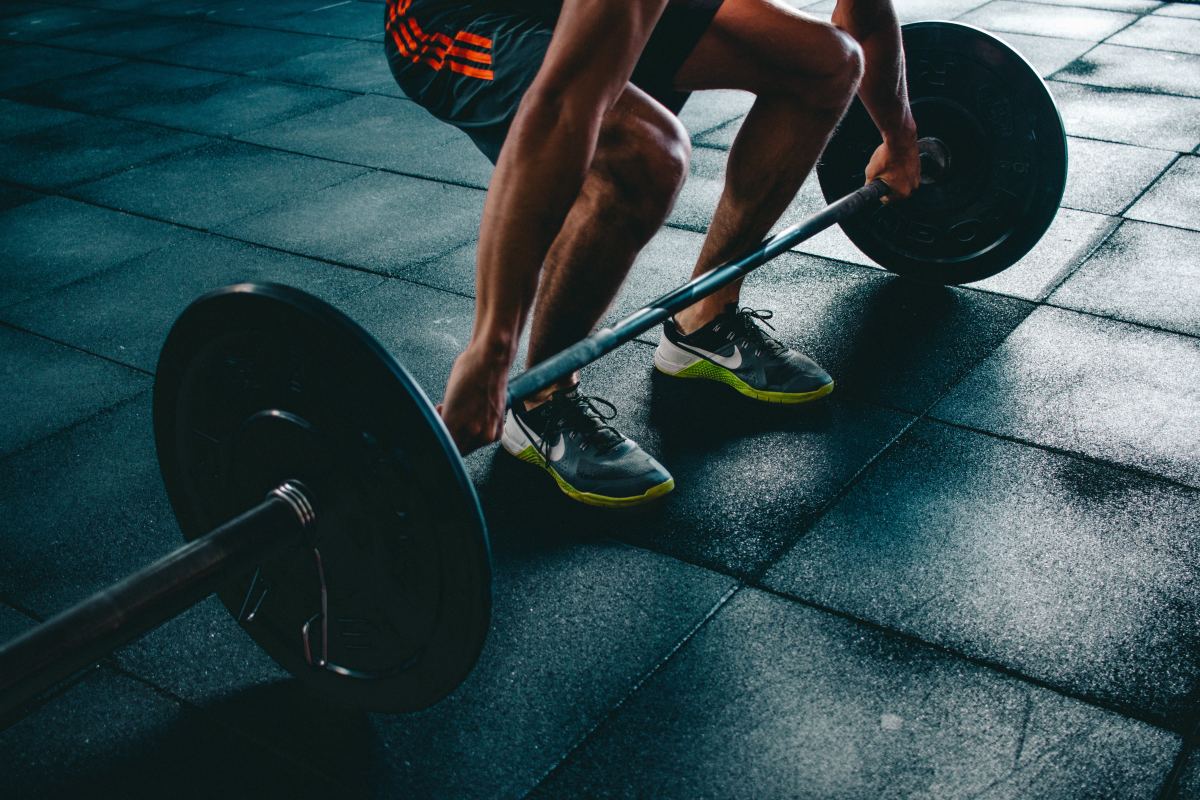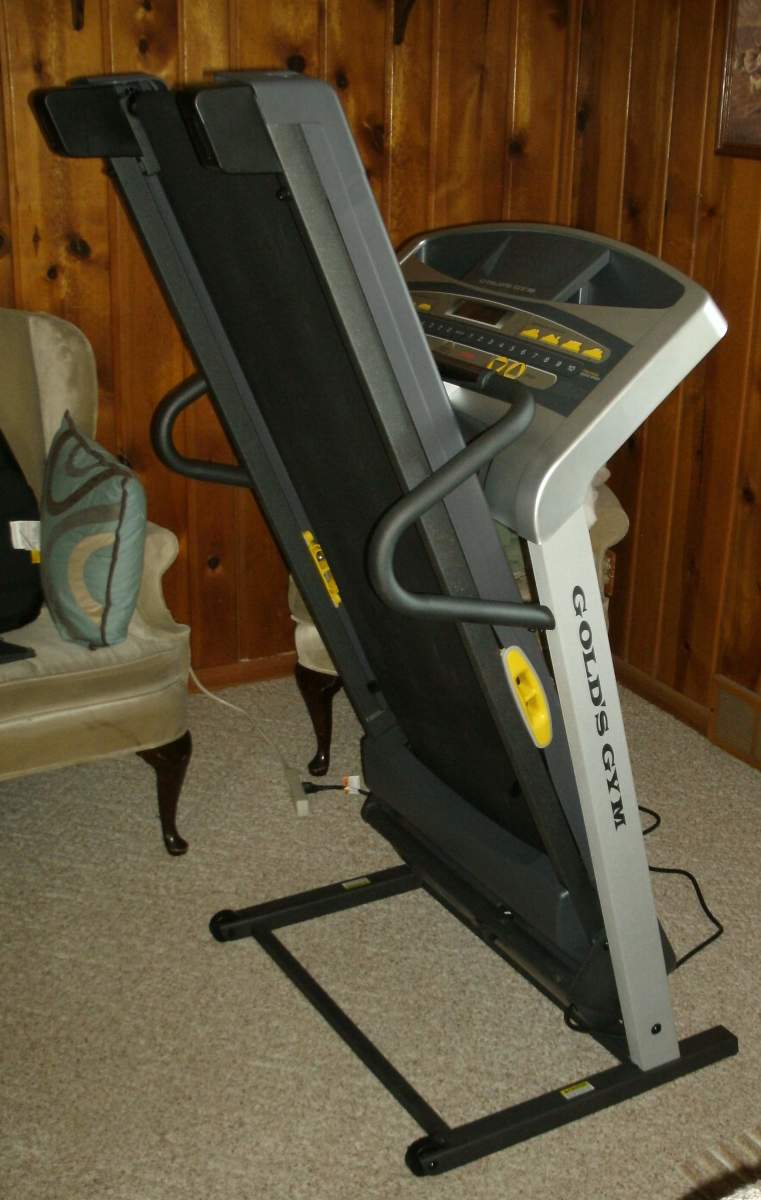Overexercising is Damaging to Your Health
Overexercising

When a Robust Exercise Becomes Overexercising
Many exercise enthusiast may be damaging their health by overexercising, but may be convinced that the answer to the effects they are feeling is to push a little harder. That's a no no. Overexercising is damaging to one's health.
"Too much of one thing is good for nothing." That is a term I remember quite well from my childhood days. That would be our parents way of telling us that we have played enough, and it was now time to quit and find something else to do. The same applies to you if you find yourself addicted to exercising, but the more you push yourself the worst you seem to feel. Overexercising will not cure whatever you are going through, but it will cause damages to the very health you are trying to maintain. Quite frankly, it can lead to your death.
People who suffer from bulimia tend to use exercise as a medium to purge themselves of (in their mind) the last bit of calorie they consumed. You may not reach that level of exercise craze, you may never be a bulimic, you may even just be an individual who exercise a few times per week to maintain health, but how much you push yourself during an exercise session can take a toll on you in more ways than one. Observe the symptoms below and see if you can identify with any of them.
Ab-Bootcamp
Exercise

Symptoms of Overexercising
The symptoms of overexercising will manifest itself in different aspects of your life. These include your physical and psychological well being.
Physical Effects
- Increased/elevated resting heart rate. If you find that your resting heart rate is more than five beats per minute it may be an indication that you are experiencing what is known as over-training syndrome. This occurs when you have trained beyond the limit at which your body is able to recover. The likely results are that you will experience a decrease your performance.
- Unexplained weight loss and decreased appetite.
- Excessive thirst, especially at nights. This is an indication that you may be dehydrated.
- Lack of perspiration. Your body may attempt to regulate its fluids by cutting down on how much it allows to escape through perspiration.
- Increased/delayed recovery time. Your muscles take a longer time to heal which leaves you sore for days.
- A weakened immune system. You have become more susceptible to illnesses such as the common cold and take longer to overcome them.
- Develop injuries much more easily.
- Increased body fat. You lost weight, but notice there is an increase in your body.
Psychological Effects
If you are an avid exerciser/athlete, and find that you are experiencing any of the following symptoms, it may be an indication that you are experiencing the psychological effects of overtraining syndrome.
- Lack of excitement for your usual fitness regimen or sport.
- Not feeling mentally prepared for exercise or competition.
- Sleep disturbances, drowsiness during the day or not being able to rest at night.
- Excessive fatigue, apathy, irritability or hostility.
- Mood changes due to other emotional feelings such as anger, depression, and inability to concentrate
.When your exercise sessions start leaving you drained instead of energized its time to sit up and start taking notice of what is happening to your body. Overexercise is counterproductive and will most likely lead to the very conditions you meant to correct or avoid. This includes weight gain and heart conditions.
Are You Suffering from the Effects of Overexercising?
Do you suffer from any of the psychological or physical factors associated with over-exercising?
Tired and Overexercised

How Does the Body React to Overexercise?
The first thing to remember here is that the reason we exercise is to get the pumping acceptable levels of the various hormones that will help keep us healthy and strong. Excessive exercising will leave the body in distress, and with the added task of trying to mop up the excess hormones that the adrenal and other glands have pumped into your body. Let us take a look, for example, at the reasons overexercising leads to stress and fat gain.
The adrenal glands that sit atop of the kidney are responsible for supplying the body with the hormone cortisone. This hormone is regarded as the stress regulator, but it carries out various other functions in the body which include:
- The proper metabolism of glucose.
- Blood pressure regulation.
- The release of Insulin for blood sugar maintenance.
- Maintaining proper function of the Immune system.
- Respond to inflammation in the body.
Cortisol is usually secreted in higher levels during the morning time, and also during any situations that cause the "fight or flight" reaction. While an increased presence of the hormone benefits the body, an excess amount that the an overworked body has to mop up actually adds to the distress. Once the body has reached its activity limit there's no need to push it any further. You would normally have to exercise harder in the first stages, but once the body peaks just don' push it. Excess cortisol in the body causes stress.
Cortisol and Fat Gain
A normal exercise session should prompt an increase in the secretion of cortisol which should in turn lead to:
- In the case of "fight or flight," a quick burst of energy for survival.
- An increase in memory functions.
- Heightened immunity.
- Increase tolerance for pain.
- The body being better able to maintain an internal equilibrium - homeostasis.
All of these functions are jeopardized when the body is overworked and excess cortisol is present. The more you exercise is the more the body will become stressed, which also means that the adrenal glands will continue responding by releasing cortisol and other stress hormones as it attempts to help the body get over that stress. You then end up with a sluggish system that just does not seem capable of going where you want it to go.
Initially, as you start to exercise you may have realized some weight loss, but then when you over do it you may notice that the fat content of your body increases. The body's response to the prolonged stress (excess stress hormone production) will over time lead to an increase in the storage of adipose tissue. There will also be a decrease in the steroid-like hormones that the body relies on to help increase muscles. A loss of muscle mass may mean you have shed a few pounds, but it does not spell well for your body as that means your body is not burning fat as efficiently as it should.
Excess Cortisol in the Body
Are you aware of the effects that excess cortisol can have on your body?
Recovery Time

The Importance of Recovery Time
After a rigorous workout your body will need adequate time to recoup and bounce back. Athletes and other sports professionals who do not adhere to this will soon find that they under perform and no longer possess the ability cope. Overexercising can lead to the development of diabetes, cancer and heart disease. This is due to the fact that when your immune system becomes compromised it leaves you susceptible to inflammations. These inflammations can in turn wreak havoc on the weakened body and lead to the development of those diseases.
Give your body adequate time to recovery after a demanding workout. Remember that the key to exercising is to get the body in peak shape so that it can function properly and keep healthy. After you have reached your peak it makes absolutely no sense to keep pushing. You will do yourself more than good if you continue to push the body beyond its limits. Let your keep fit regime be a case of exercise - nourish - rest.





